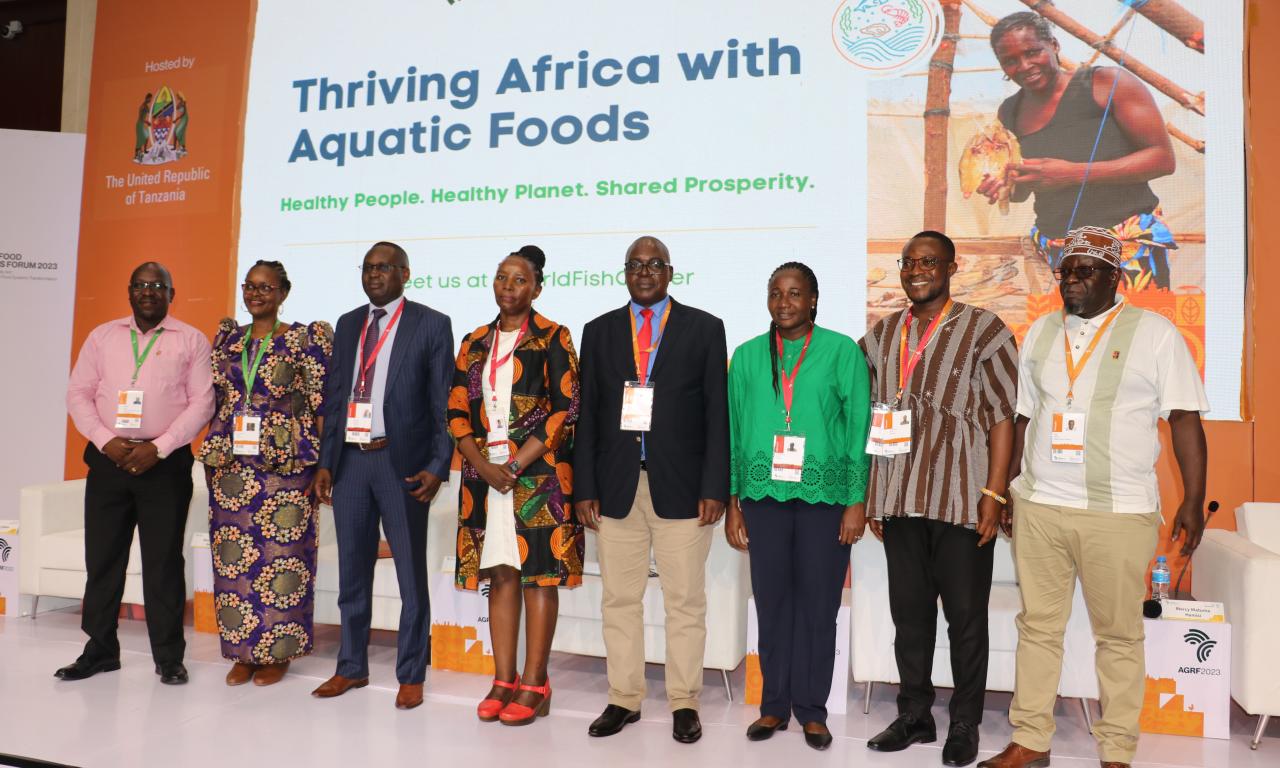
- Aquatic foods must be positioned within Africa’s agricultural research agenda, food production, consumption and trade discourse for the sector to thrive.
- Policy and regulatory frameworks must be updated and revised. This is to address social and gender norms within the aquatic food sector to unleash the potential of women and youth to participate in the sector.
- Formulation of enabling policies that will enhance financing to the sector and harmonize regulations that will promote the exchange of aquatic foods technologies and regional trade will help to propel the sector.
Transforming Aquatic Food Systems (AFS) in Africa to develop and harness their potential requires joint efforts from a range of stakeholders. This is in order to ensure that they are part of the high-level agriculture transformation agenda to support their growth and meaningful contribution to the economy.
Africa, despite boasting vast availability of interconnected natural water bodies compared to other regions, lags in developing the potential of AFS with only about 3% contribution to global production.
Recognizing the potential of AFS in providing major, irreplaceable contributions to food and nutrition security in the region, WorldFish took the cause to champion the great potential of AFS to a high-level discussion at the recently held Africa Food Systems Forum (AGRF) in Dar es Salaam, Tanzania.
A first at the AGRF, WorldFish highlighted aquatic foods through a well-attended side event dubbed, "Thriving Africa with Aquatic Foods." The event aimed at unlocking the untapped potential of aquatic foods in transforming food systems and the African economy, which is often overlooked in both global and regional discussions about food systems transformation.
The event convened voices from Zambia, Kenya and Uganda, and a regional perspective from the Southern African Development Community (SADC) secretariat to spotlight the crucial role and opportunity aquatic foods offer to sustainably elevate nutritious food production and trade. The dialogue also addressed barriers and solutions to unleashing the untapped potential of aquatic foods in ending hunger and malnutrition and improving the livelihoods of Africa’s people.
Speaking at the event, Victor Siamudaala, WorldFish Country Director, Zambia and Southern Africa said, “Strengthening input and output markets, improving financing to players in the fisheries and aquaculture sector, and creating sufficient infrastructure for trade is key to addressing some of the challenges faced in the aquatic food systems.”
Among the challenges highlighted in the discussion, were the unavailability of quality fish fingerlings, lack of affordable fish feed and inadequate financing. Other challenges spotlighted were poor market linkages, and inactive regional trade laws and regulations. This was observed to be hindering the capability of African governments to safeguard the sustainability and profitability of the industry, despite the vast potential.
“To address these challenges, we need to take the value chain approach if we are to sustain the sector and ensure that everyone is included,” said Alexander Kefi, Project Coordinator, PROFISH Blue, SADC secretariat and former Director, Department of Fisheries, Zambia.
WorldFish recommended taking a holistic approach to propelling the transformation of the Aquatic Food Systems. This was in acknowledgment of the fact that expansion of the sector will require investing in deliberate policies that will promote investment in well-targeted value chain approaches with emphasis on encouraging private sector investment aided by intentional governance policies and framework.
“The development of AFS should be coordinated and implemented with a coherent approach to the implementation of policies, particularly promoting the inclusion of youth and women. Every node in the value chain should be developed from production to consumption,” said Margaret Nakato, Coordinator, Katosi Women Development Trust and World Forum of Fish Workers, Uganda.
With the rapid effects of climate change on food production, governments were called upon to develop national climate change mitigation and adaptation plans that must integrate aquatic foods as an effective strategy to mitigate climate emissions from food systems and to enable resilience, informed by the innovations, evidence, and data from WorldFish and other notable research centers.
Notable among the people in attendance was 2021 World Food Prize laureate Shakuntala Thilsted, Tanzania Fisheries, Lake Victoria Fishers Association chairperson. The panel comprised Victor Siamudaala, Country Director, WorldFish, Zambia and Southern Africa, Alexander Kefi, Project Coordinator, PROFISH Blue, SADC secretariat and former Director, Department of Fisheries, Zambia, Margaret Nakato, Coordinator, Katosi Women Development Trust and World Forum of Fish Workers, Uganda and Mercy Matuma Hamisi, Master’s student, Aquatic Animal Health, University of Nairobi, Kenya.
